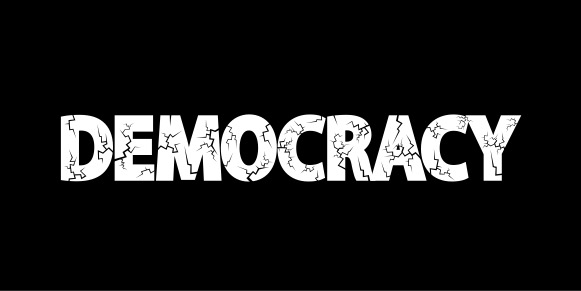
Can our religious differences be a powerful force for good? How do we not just envision, but in fact build an interreligious society in the United States? How can ICJS inspire the American public to champion religious pluralism?
A healthy, functioning democracy is necessary for the interreligious society to flourish and currently our democracy in the United States is in peril. The undermining of democracy creates an urgent threat to the ICJS vision, mission, and work. Securing democratic norms and practices, as well as confronting Christian Nationalism, are both interfaith issues central to the mission of ICJS.
Centering and prioritizing the link between democracy and the interreligious society is critical not only in our program work, but it also needs to inspire and shape our ambitious message for the country—America needs more champions for religious pluralism.
How can ICJS best meet the needs of our moment? We need to be louder about the fact that democracy is an interfaith issue, and we need to build broader and deeper coalitions of inspired, capable champions for religious pluralism from diverse sectors of society. That building work is slow and not always glamorous, but it is absolutely vital if we are going to create networks of teachers, civic leaders, clergy/congregational leaders, higher-ed faculty, and chaplains who have the knowledge and connections needed to dismantle religious bigotry and be successful champions for religious pluralism.
I have used the metaphors of the Power Grid & Fireworks to describe the dynamic tension between raising awareness and alarm (shooting fireworks) while also doing the important work of building capacity within individuals and institutions for embracing religious difference (building the power grid). Navigating that tension in a healthy and productive way will be a central organizational challenge in the next few years.
Rising to this challenge means using the influence, intellectual capital, and convening power of ICJS to shoot off bolder, better, and brighter fireworks, while also continuing to build the hope, capacity, and networks of the interreligious society. Because outrage, if left to its own devices, can lead to despair, hopelessness, and inaction. If we are only making people aware of current threats to the interreligious society, and not providing them with the tools to build a healthy, vibrant, multireligious, multiracial democracy, we are not completing our mission: to make our religious differences a force for good.
Join us in our efforts to dismantle religious bias and bigotry and to build an interreligious society, where dialogue replaces division, friendship overcomes fear, and education eradicates ignorance. We need you!